Popular on Food52
29 Comments
sparkplug
February 17, 2012
Love the series so far!
Abbondanza is a great source for seeds in Colorado!
Abbondanza is a great source for seeds in Colorado!
cookinginvictoria
February 17, 2012
Amy, I love all of the PNW seed sources you have cited. For those in Western Canada, I highly recommend the B.C. Company West Coast Seeds for really good variety. http://www.westcoastseeds.com/ For those who want to grow some unusual Italian heirloom vegetables, check out Franchi seeds, which can be ordered online in the States. http://www.growitalian.com/ I am able to buy them locally. Last year I bought Franchi seeds and grew cardoons and puntarelle (an addictive Italian chicory).
Kitchen W.
February 12, 2012
This is a wonderful company. All organic seeds. http://www.highmowingseeds.com/
saucy. V.
February 22, 2012
Yay!!! High Mowing is the best! And right here in little Vermont. I am so glad you are doing this series Amy :) People ask me all the time how they can possibly grow anything with no land... I am just writing about that myself today. And so glad you stress the importance of organic. We have an organic farm in VT, I write about my adventures in farming and food here: www.saucyvermont.com if you are interested :)
SCJ
February 12, 2012
I'd love to begin a container garden as our yard is sloped and essentially volcanic rock. I'd particularly love to grow heirloom tomatoes, greens, beets and other root vegetables. I see many comments about growing areas on the mainland, but I live in Honolulu. I would guess I should seek out heat loving seeds, but can you point me in the direction of more specific information? Mahalo!
gingerroot
February 12, 2012
Hi SCJ! I'm also in Honolulu and work for Foodscapes Hawaii, we design, install and maintain organic food gardens (or container gardens). We have clients all over Oahu and now have a pretty good idea of what will grow well here. Message me through the site and perhaps I can steer you in the right direction. Aloha, Jenny (gingerroot) PS, I've grown all the veggies you mentioned in my little raised bed - now would be the time to try beets as they like it a little cooler. I've grown carrots and turnips year round though they do like a little shade. Tomatoes love the heat here.
Amy P.
February 17, 2012
HI SCJ - as you look for seeds, YES you will have to choose more of a heat loving plant, but your possibilities are far more than other mainland gardeners, so you're lucky in that way! Looks like gingerroot can provide some information, and I will also encourage you to call your University Extension program and see if they can provide you with a vegetable planting calendar to take some of the guess work out of it. Good luck! Keep us posted.
M N.
February 9, 2012
Does anyone have any recommendations for the Gulf Coast area? Our weather is so different here from everywhere else that I don't know where to begin.
Amy P.
February 17, 2012
MN, I live in a maritime climate as well. Check out your local University Extension program and see if they have a vegetable planting guide to share. That would be the first place to look. Otherwise, stay tuned here, as we'll discuss what to plant in the coming weeks and you can make educated choices specific to your area then.
Valhalla
February 8, 2012
I just thought of another post I'd love to see in the future--I know you've got a lot of ground to cover first--incorporating technology into garden planning. I know there are several apps, but frankly every one I have tried has sucked! The best method I have found so far is to consult my extension service planting charts and then make my own, but surely there is something more efficient for those who lack tech skills but would like to be more tech savvy! For example, I feel like I need a spread sheet to keep track of my succession planting, but spreadsheets are not very fun.
Amy P.
February 9, 2012
Hey Valhalla
I totally agree and your right there are no good apps. I will keep my eyes peeled and ears open and report back anything I find . Stay tuned!
I totally agree and your right there are no good apps. I will keep my eyes peeled and ears open and report back anything I find . Stay tuned!
Janet K.
February 13, 2012
As I stated in another post try Mother Earth News Garden planner it keeps track for you and tags if the crop rotation is not compatible.
carmeneatyourgreens
February 8, 2012
I really like High Mowing Seeds. Their website has lots of pictures and is easy to navigate.
http://www.highmowingseeds.com/
http://www.highmowingseeds.com/
AmandaE
February 8, 2012
Southern Exposure is great for those in the Midatlantic region http://www.southernexposure.com/. The sell great mixes for those that are just getting started with Heirloom seeds and gardening in general. Also recommend Sprout Robot for knowing when/how/where to plant your seeds. http://sproutrobot.com/ They also sell packages that are specially formatted for the region you are in
hardlikearmour
February 8, 2012
Territorial Seeds is another great PNW resource. http://www.territorialseed.com/
MrsWheelbarrow
February 8, 2012
I love Thompson Morgan seeds. They are fresh and relatively inexpensive. There are many varieties I've never seen before.
Valhalla
February 8, 2012
For southern and midatlantic gardeners, http://www.southernexposure.com/.
I also like http://www.botanicalinterests.com/.
I've never had great success with carrots, but there is a round variety that does okay--sometimes called "French market"--great for new gardeners.
I also like http://www.botanicalinterests.com/.
I've never had great success with carrots, but there is a round variety that does okay--sometimes called "French market"--great for new gardeners.
d_ribbens
February 8, 2012
Can anyone recommend a seed/planting guide resource for the East Coast? Really looking forward to the rest of your articles - my first attempt at urban gardening last year yielded a fair amount of lettuce, 12 hot peppers, and 1 carrot ha ha! My tomato plants were an utter failure, so I am hoping to remedy that this year!
hardlikearmour
February 8, 2012
Have you check your local nursery? There's a great nursery in Portland, OR that puts out a Veggie Calendar, so maybe there's something similar for you locally.
CrewLunch
February 8, 2012
I am an organic farmer in Vermont and Johnny's Selected Seeds is my go-to for most of my crops (johnnyseeds.com). High Mowing has some really nice heirlooms too. If you can bear being overwhelmed by choices, Totally Tomato has literally thousands of varieties, several of which are suitable for containers. Good luck.
Janet K.
February 13, 2012
Hello, Mother Earth News has a vegetable garden planner that is guided by your zip code it is pretty good and easy to use.
aargersi
February 8, 2012
Carte Blanche to order a ton of seeds! I am so happy! These folks do tomatoes only - but man-o-man what a selection!
http://www.tomatofest.com/tomato-varieties-by-color.html
http://www.tomatofest.com/tomato-varieties-by-color.html
mcs3000
February 8, 2012
Love this column - answers all the questions I was looking for when I started gardening a few years ago. I am obsessed with seed catalogues, especially Baker Creek. For Bay Area readers, I also like this SF-based company: https://fireescapefarms.com/category/seeds/
Margit V.
February 8, 2012
Two seed sources--organic and with wonderful variety--are High Mowing Seeds in Vermont and Wild Garden Seed, the home of Frank Morton's amazing lettuces! Love your writing and useful information, Amy!
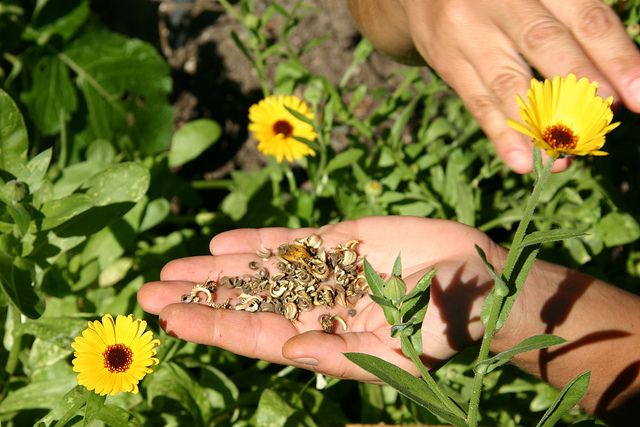
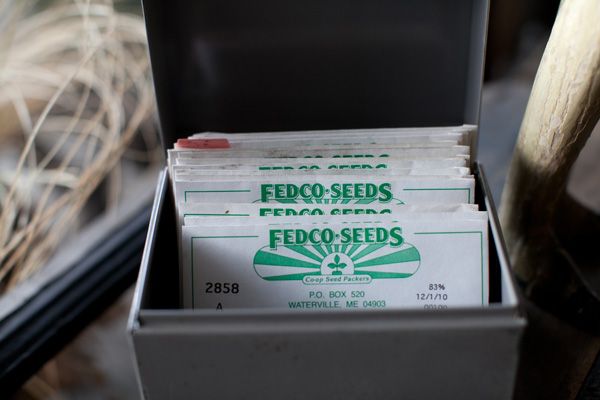
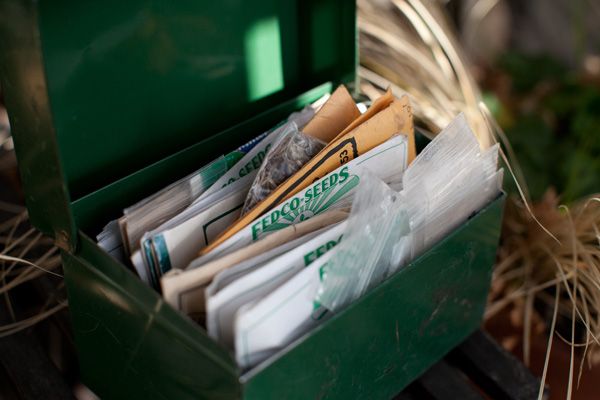
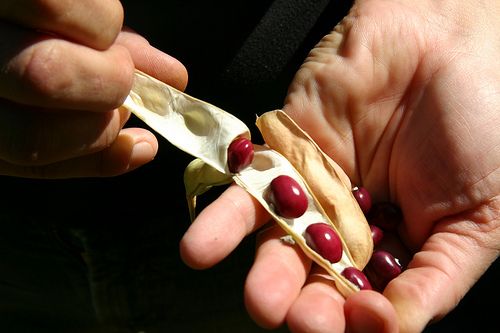
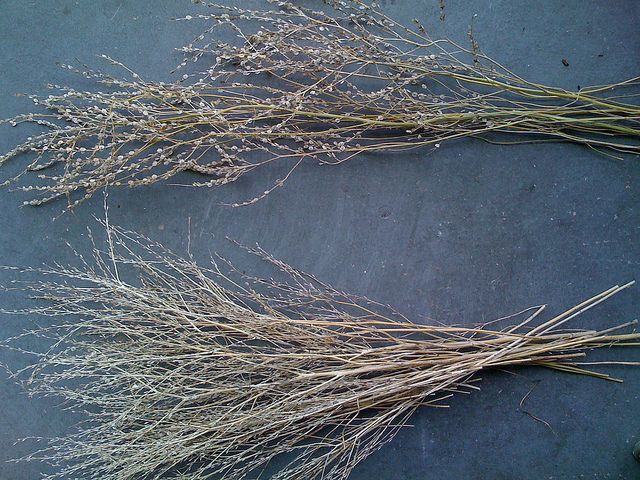

See what other Food52 readers are saying.